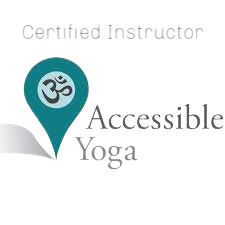There is something about being in the body physically for so much of what I do, teaching Yoga, playing and singing with the harp in hospice and also dancing that allows my thoughts at the end of the day to emerge focused, clear and concise. My mind unwinds on the drive home from SFU after 2 straight up hours of West African Dancing and prior to that teaching yoga to incarcerated women. It actually enjoyable to have the drive home to process, unwind and consciously check in with what is in my mind, my thoughts, what my heart is calling me to check in with and reconcile.
This word. Reconciliation. As an action, it is making beliefs compatible with another. As an activist, a follower of Jesus, and a yogi who also is steeped in Buddhism and Eco spirituality, this complicates things in a way a Facebook meme is unable to illustrate. How can I make my beliefs compatible with things I find reprehensible? For me personally right at this moment, that is currently the philosophy of Trump and his supporters and also locally, people who show up creating conflict and personally attacking individuals even in areas where there could be legitimate need for change.
It takes great courage to be an activist and allow vulnerability if we are grounded in compassion and not reacting or attacking at the lowest common denominator. I can’t say that I have definitive answers as I am still living and leaning into the following questions.
So, these questions surround grounded, compassionate activism:
Can we still show up in inquiry engaging in honest dialogue without making fun of an individual or designated group of people?
Can we seek to not contribute more to unnecessary suffering and stand in truth? We all see change needing to happen in the world, in our nation, in our communities.
Are we bold enough and courageous enough to do our own work from the inside out? To acknowledge where we may be wrong some times and that nobody has all the answers, but collectively we can discover a whole lot of good stuff! To not show up with the need to fulfill something within us? To not be the Saviour? (#thishasalreadybeendoneforus)
Can we be solid in our own convictions and seek to understand our neighbors whose convictions are opposite?
Can we listen deeply to each other even in extreme discomfort?
So, in my drive home, this action of reconciliation, this holding of space for opposites shows up as an ongoing process of living into these questions. For me, I look to support my own way of being in process with this grounding myself in the foundation of my faith and beliefs.
The following verses are for me personally, my foundation and blue print for right living and I joyfully but not without sometimes enormous difficulty seek to reconcile my own thoughts, speech and action from with and through this foundation.
The Beatitudes:
“Blessed are the poor in spirit,
for theirs is the kingdom of heaven.
Blessed are they who mourn,
for they shall be comforted.
Blessed are the meek,
for they shall inherit the earth.
Blessed are they who hunger and thirst for righteousness,
for they shall be satisfied.
Blessed are the merciful,
for they shall obtain mercy.
Blessed are the pure of heart,
for they shall see God.
Blessed are the peacemakers,
for they shall be called children of God.
Blessed are they who are persecuted for the sake of righteousness,
for theirs is the kingdom of heaven.”
Gospel of St. Matthew 5:3-10
The Prayer of St. Francis
“Lord, make me an instrument of thy peace.
Where there is hatred, let me sow love;
Where there is injury, pardon;
Where there is doubt, faith;
Where there is despair, hope;
Where there is darkness, light;
Where there is sadness, joy.
O divine Master, grant that I may not so much seek
To be consoled as to console,
To be understood as to understand,
To be loved as to love;
For it is in giving that we receive;
It is in pardoning that we are pardoned;
It is in dying to self that we are born to eternal life.”[5]
The ethics and philosophy of yoga in particular the yamas. Non- violence (in thoughts, words and actions) Truth. Non Hoarding. Moderation and Non- attachment.
My favorite mantra: Lo Kah Samasta Sukinu Bhavantu (May all beings be happy, free from suffering and have peace and may my thoughts, words and actions contribute to the happiness, freedom from suffering and peace of all life).
Thich Nhat Hanh’S Fourteen Precepts of Engaged Buddhism
1Do not be idolatrous about or bound to any doctrine, theory, or ideology, even Buddhist ones. Buddhist systems of thought are guiding means; they are not absolute truth.
2
Do not think the knowledge you presently possess is changeless, absolute truth. Avoid being narrow minded and bound to present views. Learn and practice nonattachment from views in order to be open to receive others’ viewpoints. Truth is found in life and not merely in conceptual knowledge. Be ready to learn throughout your entire life and to observe reality in yourself and in the world at all times.
3
Do not force others, including children, by any means whatsoever, to adopt your views, whether by authority, threat, money, propaganda, or even education. However, through compassionate dialogue, help others renounce fanaticism and narrow-mindedness.
4
Do not avoid suffering or close your eyes before suffering. Do not lose awareness of the existence of suffering in the life of the world. Find ways to be with those who are suffering, including personal contact, visits, images and sounds. By such means, awaken yourself and others to the reality of suffering in the world.
5
Do not accumulate wealth while millions are hungry. Do not take as the aim of your life fame, profit, wealth, or sensual pleasure. Live simply and share time, energy, and material resources with those who are in need.
6
Do not maintain anger or hatred. Learn to penetrate and transform them when they are still seeds in your consciousness. As soon as they arise, turn your attention to your breath in order to see and understand the nature of your hatred.
7
Do not lose yourself in dispersion and in your surroundings. Practice mindful breathing to come back to what is happening in the present moment. Be in touch with what is wondrous, refreshing, and healing both inside and around you. Plant seeds of joy, peace, and understanding in yourself in order to facilitate the work of transformation in the depths of your consciousness.
8
Do not utter words that can create discord and cause the community to break. Make every effort to reconcile and resolve all conflicts, however small.
9
Do not say untruthful things for the sake of personal interest or to impress people. Do not utter words that cause division and hatred. Do not spread news that you do not know to be certain. Do not criticize or condemn things of which you are not sure. Always speak truthfully and constructively. Have the courage to speak out about situations of injustice, even when doing so may threaten your own safety.
10
Do not use the Buddhist community for personal gain or profit, or transform your community into a political party. A religious community, however, should take a clear stand against oppression and injustice and should strive to change the situation without engaging in partisan conflicts.
11
Do not live with a vocation that is harmful to humans and nature. Do not invest in companies that deprive others of their chance to live. Select a vocation that helps realise your ideal of compassion.
12
Do not kill. Do not let others kill. Find whatever means possible to protect life and prevent war.
13
Possess nothing that should belong to others. Respect the property of others, but prevent others from profiting from human suffering or the suffering of other species on Earth.
14
Do not mistreat your body. Learn to handle it with respect. Do not look on your body as only an instrument. Preserve vital energies (sexual, breath, spirit) for the realisation of the Way. (For brothers and sisters who are not monks and nuns:) Sexual expression should not take place without love and commitment. In sexual relations, be aware of future suffering that may be caused. To preserve the happiness of others, respect the rights and commitments of others. Be fully aware of the responsibility of bringing new lives into the world. Meditate on the world into which you are bringing new beings.
From the book ‘Interbeing’: Fourteen Guidelines for Engaged Buddhism, revised edition: Oct. l993 by Thich Nhat Hanh, published by Parallax Press, Berkeley, California
May we all be reconciled to one another in love. Namaste.




